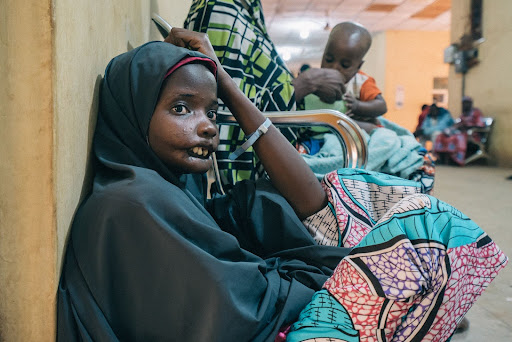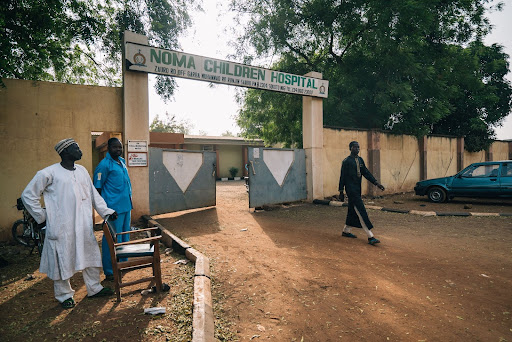MSF, Nigerian Health Ministry Discuss Comprehensive Treatment For Noma Patients In Northwest Nigeria
To celebrate National Noma day, the Nigerian Ministry of Health and MSF seek approaches from stakeholders on preventing and treating noma survivors in Northern Nigeria.

Medecins Sans Frontieres/Doctors Without Borders (MSF), an International NGO, is working with the Nigerian Ministry of Health and Sokoto state to provide free extensive treatment of acute noma patients and surgical interventions for survivors of noma at the Sokoto Noma Hospital, in Northwest Nigeria, to help them in the recovery of aesthetics and functionality of their faces.
The health organisation said this in a press statement, marking the 5th National Noma Day on Saturday, Nov. 20th, in Sokoto city.
According to MSF, the event aims to bring stakeholders to discuss the best prevention and treatment method for noma, or cancrum oris (Gaude, zaizayar baki in Hausa). This non-contagious disease starts as inflammation and can rapidly destroy the face bones and tissue, affecting children mainly between 2 and 6 years.
The World Health Organisation (WHO) estimates that up to 90 per cent of the people affected by the disease die within weeks if they do not receive timely treatment, the statement reads.
Those who survive are left with severe facial disfigurements that make it hard to eat, speak, see, or breathe. MSF said, “survivors often face stigma as a result of their disfigurements. The disease is generally related to the lack of access to healthcare, malnutrition, poor oral hygiene and infection with other diseases, such as measles and malaria.”
“If the disease is detected at an early stage, treatment can be easy through medical attention. The reality is that this neglected disease often goes unrecognised until patients die or suffer irreversible trauma.”
A study by MSF estimates that there are 3,300 cases per 100,000 children in Northern Nigeria. According to the WHO, there are 140,000 new noma cases globally, but many more go undetected.
According to MSF, the Nigerian government is working towards eradicating noma by 2030. The Federal Ministry of Health has put together a National Noma Control policy with a five-year action plan for Nigeria, spanning 2019 to 2023.
Noma Children’s Hospital in Sokoto, being the only specialised noma hospital in Nigeria and one of the few in the world, holds a special position in the treatment and awareness-raising of the disease, according to MSF.

In addition, MSF started supporting the Noma Children’s Hospital Sokoto in 2014. The facility has treated 827 patients with acute noma, of whom 36 per cent were also treated for severe acute malnutrition, and conducted 893 surgeries for noma patients. MSF team also provided 4,148 psychological first aid sessions with noma patients.
To reach a consensus on an approach to prevent and treat noma, MSF said, the participants will discuss setting up noma-specific departments in the Ministries of Health in Sokoto, Zamfara, Kebbi, and possibly Katsina and Kano states.
MSF further highlighted that they would also discuss the inclusion of noma in the training curriculum of all state medical programs, adopting oral screening in all healthcare facilities for children between two and six years, the designation of the Noma Children’s Hospital in Sokoto as a federal institution by the Federal Ministry of Health, and inclusion of noma patients in economic and social recovery schemes.
In addition, MSF has rolled out a comprehensive outreach program in Northwest Nigeria that includes training for communities and healthcare workers to encourage early detection and prompt referral of noma patients.
MSF is also advocating on the national and global level to include noma in the WHO’s list of neglected tropical diseases (NTD). This would, according to the health organisation, put a spotlight on the disease and facilitate the integration of noma prevention and treatment activities into existing public health programmes.
Support Our Journalism
There are millions of ordinary people affected by conflict in Africa whose stories are missing in the mainstream media. HumAngle is determined to tell those challenging and under-reported stories, hoping that the people impacted by these conflicts will find the safety and security they deserve.
To ensure that we continue to provide public service coverage, we have a small favour to ask you. We want you to be part of our journalistic endeavour by contributing a token to us.
Your donation will further promote a robust, free, and independent media.
Donate HereStay Closer To The Stories That Matter




